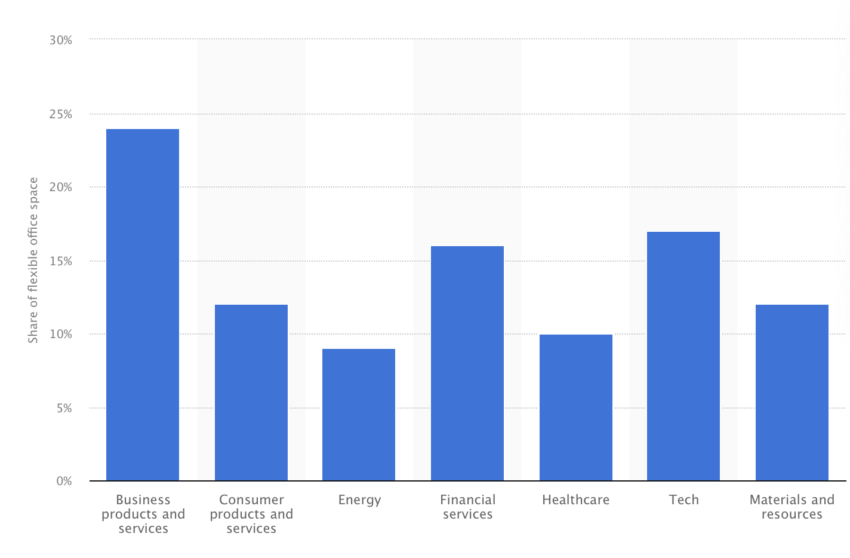The collapse of WeWork on Nov. 6 has left a gap in the coworking industry that other firms are eagerly snapping up. Once synonymous with flexible working arrangements, WeWork filed for Chapter 11 bankruptcy in New Jersey amid a mountain of debt.
Unlike other coworking companies, which share profits from membership fees with landlords, WeWork chose to collect all membership fees and take out long-term property leases. While this approach meant the company prospered, it also exposed the company to short-term risks like the pandemic, implied John Arenas of Serendipity Labs, a WeWork competitor.
Steady Demand for Flexible Working Spaces
Furthermore, it appears that while the demand for coworking spaces has not diminished, their positioning is changing. For example, Serendipity and others are building spaces in inner city regions as opposed to major urban centers like Chicago or New York.
Sara Sutton, the CEO and founder of FlexJobs, a remote job service, says that because hybrid work arrangements are now commonplace, demand will not drop because of the failure of WeWork.
“The numbers show growth in interest in the coworking space, and I don’t see those suddenly dropping because of WeWork.”
Web3 Flexible Working Spaces Emerge
There may soon be an increasing demand for Web3-focused flexible working spaces after the UK and Hong Kong embraced Web3 earlier this year. So far, Hong Kong has onboarded over 150 crypto and Web3 firms, while venture capitalist Andreessen Horowitz announced they would open a new Web3 hub in London.
Companies are emerging to meet the need for flexible Web3 working arrangements. A company called Huckletree opened a Web3 and metaverse coworking space in London in March. This opening was part of a larger initiative to make Oxford Street a Web3 hub for investors and companies.
Read more: Top 13 Highest Paying Web3 Jobs: A Comprehensive List
Oosh Tech Lab, a venture capital firm, offers flexible Web3 working spaces at its facility in Central, Hong Kong. These include a hot desk for solo professionals, private offices, and meeting spaces. Its meeting and event spaces can be used to host physical or virtual events.
These flexible Web3 working spaces may be crucial for the industry to make its products more user-friendly. At its Blockchain Week in Istanbul, Binance announced a new Web3 wallet designed to make changing between centralized and decentralized finance seamless. Animoca Brands recently invested in hi, a Web3 super financial app that combines the crypto and fiat financial worlds.
Read more: A Beginner’s One-Stop-Shop for Web3 Project Ideas
Do you have something to say about flexible working in Web 3 or anything else? Please write to us or join the discussion on our Telegram channel. You can also catch us on TikTok, Facebook, or X (Twitter).
Top crypto platforms in the US | November 2023
![]()
Paybis
Paybis” target=”_blank”>No fees for 1st swap →
![]()
iTrustCapital
iTrustCapital” target=”_blank”>Crypto IRA →
![]()
Coinbase
Coinbase” target=”_blank”>$200 for sign up →
![]()
Uphold
Uphold” target=”_blank”>No withdrawal fee →
![]()
eToro
eToro” target=”_blank”>$10 for first deposit →
![]()
BYDFi
BYDFi” target=”_blank”>No KYC trading →
The post How Web3 Companies Are Filling the Void Left by WeWork’s Bankruptcy appeared first on BeInCrypto.
